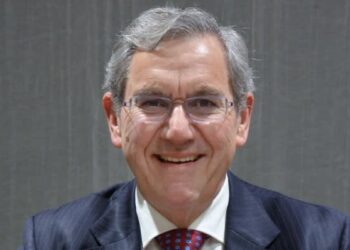On the latest episode of the ifa Show, co-chief executive of the Responsible Investment Association Australasia (RIAA), Estelle Parker, said that Australian investors’ interest in environmental, social and governance (ESG) and values-based investing continues to increase.
“The growth in interest and awareness of responsible investment has kind of come alongside the growth in the compulsory superannuation regime here in Australia. So, people are really interested now,” she said.
“People are starting to realise that their investments, whether it’s through their super fund or another investment portfolio, can make a collective impact on the world.”
Australia’s increasing interest in responsible investing, Parker said, has led to more than a third of the total investment market being responsible investments.
“The latest study shows that 76 per cent of Australians actually want their fund to commit to a net zero carbon emissions by 2050 – this is a representative sample of the Australian population that was conducted by an independent research company,” she said.
“Those kinds of attitudes have meant that the market itself, the responsible investment market as we at RIAA define it, is now representing 36 per cent or $1.3 trillion.”
A recent consumer research report by RIAA, From Values to Riches 2024, found that 88 per cent of Australians expect their super and other investments to be invested responsibly and ethically, up from 83 per cent in 2022.
The research further found that almost half of Australians, 48 per cent, say recent events have prompted them to think about whether their investments are contributing to climate change or human rights abuse.
Reflecting on these findings, Parker said consumer values are becoming increasingly important when it comes to investing and they expect their various investments to be geared towards these values.
“It’s interesting to see that rise in people who actually expect that their super, their investments, and their banking products are actually aligned with their values. And they’re quite often surprised to find out that they’re not,” she said.
“We’ve got 74 per cent of people really concerned about animal cruelty, for example. We’ve got 89 per cent of Australians telling us that they want their bank and their super to avoid human rights abuses, and particularly climate change.
“And recent events have prompted people to think much more about where their money’s going. Things like bushfires will turn people’s attention to what their portfolios contain and what their super fund or their investments are actually gearing towards.”
Highlighting the drive behind shifting attitudes, Parker said increased understanding that values-based investing does not come at the cost of financial benefits has played a role in the change.
“They do this to align investments with their values. They do this because they understand that the risk considerations are a lot stronger when you are considering environmental, social and governance risk alongside returns in investment decision making,” she said.
“And they do it as well because there is this kind of increasing understanding that you don’t have to sacrifice returns to do values aligned or responsible investing. They want to use their money for a better future for their children.”
To hear more from Estelle Parker, tune in here.



